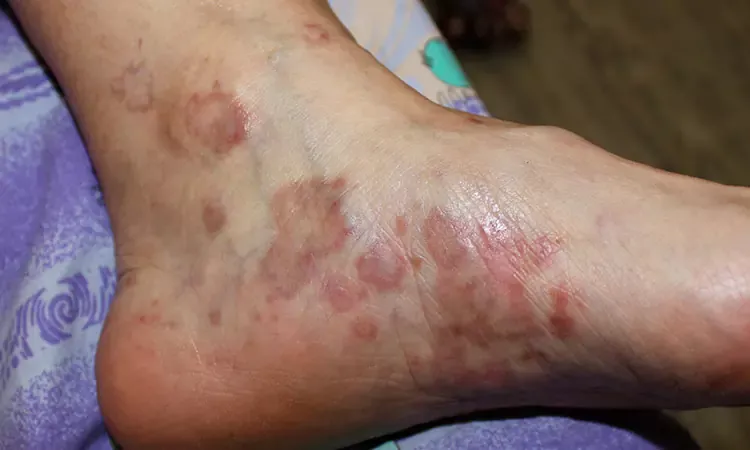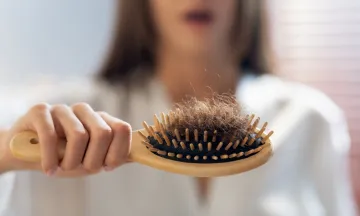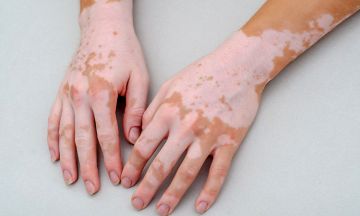Tips to successfully manage and treat Lichen Planus
"Have you been getting a rash during last few days? Tried taking anti-allergic medications suggested by your local chemist, but to no avail? Do you find the itching troubling and the rashes spreading? Has it left you wondering what really is going wrong with you?"
It could be the beginning of something called Lichen Planus disease!
What is Lichen Planus?
Lichen Planus is an inflammatory condition of the skin and mucous membranes that cause itchy non-infectious rashes on the body.
The rashes of lichen planus disease typically are flat topped with many sided pink or purple bumps that differentiate it from the typical allergic rash. It usually affects the arms and legs, but can also be found in the mouth (oral lichen planus) or genital area (genital lichen planus). The rash can spread rapidly or can be slow and gradual depending on the severity of the disorder.
What are the causes of lichen planus?
The exact cause of lichen planus is not known and it is believed to be idiopathic in nature. Some research has linked it to auto immunity, where the defence mechanism attacks the healthy tissue mistakenly.
It does not have a genetic linkage and is not a contagious disease. It can occur as a reaction to certain medications like anti-hypertensives like beta blockers, anti-inflammatory medications, anti-malarials and diuretics.
Oral lichen planus can occur as a result of mercury tooth fillings, or a reaction to repeated irritation of the buccal mucosa. Patients with liver disease are at a higher risk of developing lichen planus.
It mainly affects middle age and is seen equally in both women and men.
How does it present?
Lichen planus symptoms mainly involve intense itching with rashes coming on abruptly. The rash can last from a few days to few months. Itching is mainly more at night. The most commonly affected areas are wrists, elbows, ankles and lower back, as also the shin and arm pits.
Oral lichen planus appears as white streaks in the inside of cheeks, also affecting the gums, teeth and tongue in some cases. These streaks are not painful, but they do not go away. There may be a change in the taste, with the person experiencing a metallic taste in mouth.
Genital lichen planus also develop as pinkish purplish bumps in the penis, vagina or vulva that are not very painful or itching. It is often confused with thrush (fungal infection). The genital area may develop redness and soreness making sexual intercourse painful and difficult.
How is it diagnosed?
Lichen planus disease is mainly diagnosed by the typical appearance of rash and the suddenness of its appearance. In certain cases, a punch biopsy is done to study the characteristics of the rash under microscope.
Can it be treated?
Skin disease lichen planus cannot be cured. But it can be managed effectively with medications and lifestyle modifications.
It is a self-limiting condition that clears up within few weeks to months. In certain cases, it can go on for years too. The key to keeping it in check is regular monitoring so as to know the extent of the disorder.
The conventional allopathic medications like anti-histamines help in control of the itching and discomfort, while steroids are administered to reduce the redness and the inflammation. These treatments can have long term side-effects that can be life threatening.
An alternative to the conventional medications is homeopathy treatment for lichen planus. Homeopathic medicines for lichen planus help to go to the root of the disease and correct the deranged immune system, thereby providing a long-lasting effective solution to the problem as also providing symptomatic relief. It helps in reducing the severity of the rash and period of relapses too. And the best thing about lichen planus homeopathic treatment, all this comes with no side-effects!
Apart from medical management, here are a few tips that can help you manage lichen planus disease better:
- Apply a cool compress or ice to the skin instead of scratching.
- Try reducing stress with help of yoga, medication or indulging in hobby of choice, as stress tends to be a major trigger for lichen planus.
- In case of oral lichen planus, avoid smoking, alcohol, spicy, oily or any preservative foods that could increase the irritation to the mucosa (inner lining of mouth) affected.
- Regular moisturising of skin helps keep it hydrated, thereby reducing itching.
- Avoid synthetic clothing or use of cosmetics that can increase irritation of the already inflamed skin.
- Eat healthy! An intake of fruits and vegetables in your daily diet helps keep your skin healthy.
- Try and avoid repeated injuries to skin, as friction may trigger an episode of lichen planus disease.
"Done all of these, and your skin rash still bothers you?
Its time you see the homeopathy expert then!"
Book an appointment at https://www.drbatras.com/book-an-appointment and get rid of those lichen planus patches forever.



